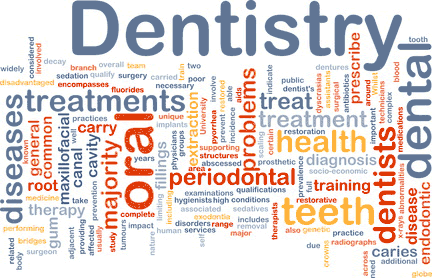Your oral health is more important than you might realise. Here are the facts about how the health of your mouth, teeth and gums can and they affect your general health.
Did you know that your oral health can offer clues about your overall health or that problems in your mouth can affect the rest of your body? Understand the intimate connection between oral health and overall health and what you can do to protect yourself.

What is the connection between oral health and overall health?
Like many areas of the body, your mouth is teeming with bacteria, most of them harmless. Normally the body’s natural defenses and good oral health care, such as daily brushing and flossing, can keep these bacteria under control. However, without proper oral hygiene, bacteria can reach levels that might lead to oral infections, such as tooth decay and gum disease.
Studies suggest that oral bacteria and the inflammation associated with periodontitis, a severe form of gum disease; might play a role in some diseases.
What conditions may be linked to oral health?
Your oral health might affect, be affected by, or contribute to various diseases and conditions, including:
Endocarditis
Endocarditis is an infection of the inner lining of your heart (endocardium). Endocarditis typically occurs when bacteria or other germs from another part of your body, such as your mouth, spread through your bloodstream and attach to damaged areas in your heart.
Cardiovascular disease
Some research suggests that heart disease, clogged arteries and stroke might be linked to the inflammation and infections that oral bacteria can cause.
Pregnancy and birth
Periodontitis has been linked to premature birth and low birth weight.
Diabetes
Diabetes reduces the body’s resistance to infection, putting the gums at risk. Gum disease appears to be more frequent and severe among people who have diabetes. Research shows that people who have gum disease have a harder time controlling their blood sugar levels.
Osteoporosis
Osteoporosis which causes bones to become weak and brittle, might be linked with periodontal bone loss and tooth loss.
Alzheimer’s disease
Tooth loss before age 35 might be a risk factor for Alzheimer’s disease.
Other conditions
Other conditions that might be linked to oral health include Sjogren’s syndrome, an immune system disorder that causes dry mouth and eating disorders.
Because of these potential links, be sure to tell your dentist if you’re taking any medications or have had any changes in your overall health, especially if you’ve had any recent illnesses or you have a chronic condition, such as diabetes.
How can I protect my oral health?
To protect your oral health, practice good oral hygiene every day. For example:
• Brush your teeth at least twice a day.
• Floss daily.
• Eat a healthy diet and limit between-meal snacks.
• Replace your toothbrush every three to four months or sooner if bristles are frayed.
• Schedule regular dental checkups.
Also, contact your dentist as soon as an oral health problem arises. Remember, taking care of your oral health is an investment in your overall health.





